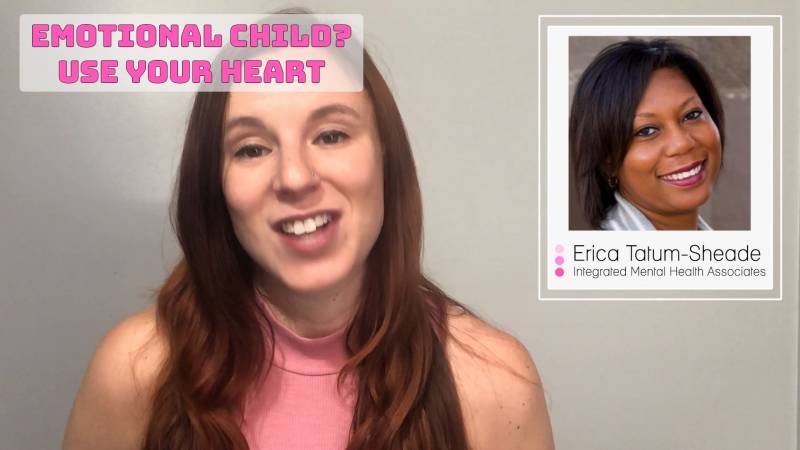
Erica Tatum-Sheade is featured in the new documentary, The Overly Emotional Child
This new documentary helps parents gain a deeper understanding of why children may have BIG Emotions.
Learn how you can help your child:
- Eliminate tantrums
- Stop shutting down
- prevent overreacting
Like a complete course to help parents and children gain emotional intelligence together.
Get more info on the documentary at
www.learningsuccesssystem.com/documentary/emotional
Emotional Child? Use Your Heart
Samantha (00:00):
In today's video. We have Erica Tatum-Sheade. Erica is a licensed child and adolescent therapist practicing in Scottsdale, Arizona. She is a certified daring way facilitator and the creator of G E M S a group-based curriculum for girls that focuses on learning to be the best version of ourselves. When she's not busy running her business with her husband, she enjoys spending time with her three very active children. Let's see what Erica has to say about helping children manage emotions
Erica Tatum-Sheade (00:30):
As parents, when our child is experiencing high emotions, there are three things that we need to remember. The first is we need to remember to use our heart. You know, when we approach our children with compassion, they have an understanding that we're not there to punish them. We're not there to shame them are actually there to support them. When we walk in with compassion, empathy is right along with us and empathy is what drives connection. It's what creates that understanding between two people. It helps our child understand that we truly see them and we hear them and we understand what they're going through. The second thing we need to remember is to use our ears. Oftentimes we see this behavior and we are addressing what we see, but we're not actually listening to what the behavior is. Communicating to us. Behavior is always communication. And if we can truly hear what this behavior is trying to tell us, then we understand the need that our child is trying to get met by this behavior.
Use Compassionate Empathy
Erica Tatum-Sheade (01:32):
So when we hear it, we can heal it. The final thing we need to remember is to use our hands. You know, when our kids were young and they were learning how to walk, you know, we didn't just grab their hand and drag them along the way. You know, we sat across from them and we reached out our hands and we said, you got this, but just in case you fall, I'm here to catch you. I'm here to support you as our kids grow older and they're experiencing new things. If they're overwhelmed with emotion, if they're overwhelmed with their thoughts, if they're overwhelmed with just all of these feelings that are coming at them really fast, it's important to remember that we need to reach out our hands and say, you got this, but just in case, I'm here to catch you. If you fall, we need to be that stabilizing support.
Erica Tatum-Sheade (02:20):
So they understand no matter what, they have a place to land, they have someone who uses compassionate empathy. They have someone who truly hears them and understands the needs that they're trying to get met. But if we can provide a place of, of foundation of like, yes, this is hard, but yes, I'm here. And I'll walk through this with you. I know this is overwhelming, but I'll help you get through this. Then our kids can learn to how our kids can learn, how to regulate our job is to offer the compassion, the empathy, and truly hearing what they're trying to, what they're trying to express to us, and then be that solid foundation of what it looks like to be, to regulate our emotions. What it looks like to have empathy and compassion, what it looks like to, to feel when someone else is feeling.
Make sure to watch the full documentary on childhood emotions. You'll learn how to help your child manage their own emotions. You'll learn about your own emotions and how they affect your child. And you'll learn simple ways of helping children improve behavior.
Get more info at
www.learningsuccesssystem.com/documentary/emotional
Key Takeaways:
Do You Need help with a Learning Difficulty?
Our simple online analysis will help you get to the core of the problem and find the right solution for you.
Understanding how to help someone with a learning difficulty starts with understanding which micro-skills are affected. When you learn which of the micro-skills is the problem, you will then be on your way to solving it.
You'll also learn how to:
- Build confidence
- Enhance Learning ability
- Eliminate avoidance
- Build grit
You can get this analysis for free by filling out this simple form. This will help you get to the bottom of a learning difficulty and provide you with a solution. If you are ready to put this problem behind you click the button below and fill out the form.










